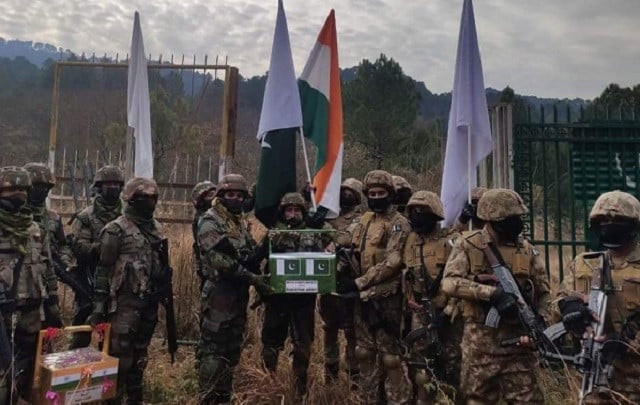Pak, India exchange lists of nuclear installations
Both sides also forward names of inmates in each other’s jails

Despite the tense relationship between Pakistan and India, the two nuclear armed neighbours on Saturday exchanged list of their respective nuclear installations and facilities as well as lists of prisoners languishing in each other’s jails.
The two sides exchanged those lists under the bilateral agreements that remained intact despite continued strains in ties between them.
“In accordance with Article-II of the Agreement on Prohibition of Attacks against Nuclear Installations and Facilities between Pakistan and India, signed on 31 December 1988 and ratified on 27 January 1991, the list of nuclear installations and facilities in Pakistan was officially handed over to a representative of the Indian High Commission at the Ministry of Foreign Affairs today, at 1030 hours (PST),” said a statement issued by the Foreign Office.
The Indian Ministry of External Affairs in New Delhi handed over the list of Indian nuclear installations and facilities to a representative of the Pakistan High Commission at 1100 hours (IST).
The agreement provides, inter alia, that both countries should inform each other of their nuclear installations and facilities within the definition of the agreement on 1st January of each calendar year.
This practice has been followed consecutively since January 1, 1992.
The two sides on the first day of New Year also exchanged list of prisoners languishing in each other’s jail. Pakistan shared with the Indian High Commission in Islamabad a list of 628 Indian inmates in Pakistan including 51 civilians and 577 fishermen.
“This step is consistent with clause (i) of the Consular Access Agreement between Pakistan and India, signed on May 21, 2008, under which both countries are required to exchange lists of prisoners in each other’s custody twice a year, on 1 January and 1 July, respectively,” read the official statement.
The Indian government also simultaneously shared a list of 355 Pakistani prisoners in India including 282 civilians and 73 fishermen with the High Commission for Pakistan in New Delhi.
Read US blacklists Chinese firms for allegedly aiding Pakistan's nuclear activities
The two sides continue to adhere to these bilateral arrangements even have no formal or structured dialogue at the moment.
The relationship between the two sides continued to deteriorate since August 2019 when India unilaterally revoked the special status of the disputed Jammu and Kashmir territory.
Pakistan in reaction to India’s move downgraded diplomatic relations by recalling its high commissioner from New Delhi and expelling the Indian envoy from Islamabad. It also suspended bilateral trade with the country.
In February last year there was a hope of thaw when the two sides unexpectedly announced the restoration of ceasefire along the Line of Control (LoC).
The ceasefire deal was the result of behind the scene talks between the senior security officials of both the countries. Both the sides were to take further confidence building measures such as restoration of bilateral trade and diplomatic ties. However, the Pakistani cabinet shot down a proposal to import sugar and cotton from India.
Prime Minister Imran Khan had made it clear that there would be no normalisation of relationship with India unless New Delhi restored the special status of Kashmir.
Despite those setbacks, ceasefire between the two nuclear-armed neighbours is holding as there was no notable incident along the de facto border in 2021.


















COMMENTS
Comments are moderated and generally will be posted if they are on-topic and not abusive.
For more information, please see our Comments FAQ